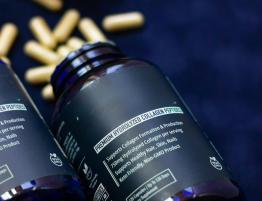
On the first of October the reformed Chinese Food Safety Law (FSL) –approved by the National People’s Congress on 24 April– officially entered into force. It stems from the need to harmonize the management of food safety with the regulations of other countries. The new Food Safety Law must therefore be seen as a tangible sign provided by the Chinese government to consider the issue of safety in this field as a new priority. The new law consists of 10 chapters, for a total of 154 articles, 50 articles more than the previous text of 2009.
Following some critical issues of the previous system, the Food Safety Law improves the control of specific products:
– baby food: strict guidelines have been laid down to ensure the safety of children’s products; raw materials, additives, formulas, labels etc. must now be communicated to the competent provincial offices (Food and Drug Administration). The formulas will have to be registered with the central Chinese Food and Drug Administration. Sub-packing of baby food is also prohibited, and manufacturers are forbidden to use the same formula to commercialize the same product through different brands;
– organic products: with reference to the issues which emerged in the manufacturing, distribution and marketing of organic food, labels of organic food cannot include any indication concerning possible therapeutic functions of those products. On the contrary, it is now necessary to state “this product cannot replace medication”. The FSL also provides that the Chinese Food and Drug Administration has to publish periodically a list of organic ingredients; after that publication, the raw materials which are not included in the list or the new organic products imported from abroad must be registered with the CFDA;
– food for medical purposes: these products must meet higher safety requirements and must therefore be registered before they are used. The documentation regarding formulas, production techniques, labels and whatever may ascertain their safety, nutritional capacity and clinical effects must be submitted upon registration;
– products sold online: the sale of food products through the internet, which has become widespread within the Chinese territory, has made the provision of a specific regulation on safety necessary. Such regulation did not exist before the reform. To this concern, the FSL has adopted specific rules on controls that have to be made in online sales. Managers of virtual platforms are now expected to perform accurate checks on sellers and distributors, ensuring that they have all the necessary sale licenses. Retailers will have to be provided with precise information regarding their own liability arising from their commercial activities. In case of violations of consumer rights related to a sale which took place on an online platform, the corresponding compensation will be directly charged to the retailer. An exception is the case in which the platform manager is unable to provide precise information about the seller or the manufacturer (name, address and contact details); in such cases, he will be instead answerable for any kind of refunding;
– genetically modified products: labels of GMO products must be clearly marked with the corresponding wording;
– imported products: there are additional requirements for the labelling of imported products. They will necessarily have to list, among other details, information about the manufacturer’s name, the list of ingredients and a mention of each single additive, the date of manufacture and expiry, the storage conditions, instructions for use, origins of the product, name and contact details of the exporter and distributor etc. in Chinese language.
The new legislation has also exacerbated the entire overall system of fines; for example, in terms of damage resulting from breaches on food safety, the consumer protection law provides for compensation of up to twice the total loss in the event of serious harm or death, while the FSL provides that the compensation from the manufacturer or distributor has to be up to three times the incurred loss. Moreover, if prior to the new law the use of illegal additives could result in a fine that ranged from 5 to 10 times the value of the illegal goods, pursuant to the new legislation the fines can now be calculated starting from a minimum of fifteen to a maximum of thirty times the value itself.
Foreign companies operating in this sector should be especially cautious and careful in ensuring their business complies with the law provisions; this in order to avoid major fines or the withdrawal of their products with consequent loss of profit.
(Shanghai Office – Mattia Nannini – 00862151501952 )









